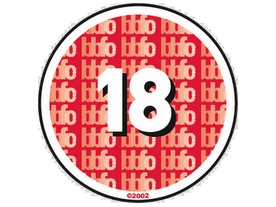BBFC hits back at ELSPA
Following last month's Byron Review of violent games

Sign up for breaking news, reviews, opinion, top tech deals, and more.
You are now subscribed
Your newsletter sign-up was successful
Following last month's government-sponsored Byron Review into violent games and 'young people's access to inappropriate digital entertainment', the British Board of Film Classification spoke out this week against criticisms levelled at them from the games industry's trade organisation ELSPA.
BBFC director David Cooke told TechRadar: "The only thing that has irritated me a bit is the line of argument that we are not properly resourced to take on extra [games ratings] work. Which really is nonsense."
Cooke added: "It’s probably somewhere between an extra 300 and 500 works [games] a year. And when you bear in mind we have more than doubled the number of DVDs we rate – taking on more than an extra 10,000 – it just goes to show that it’s not such a huge increase in comparison with that.
Men in bowler hats
"Another argument [from ELSPA] is that the BBFC somehow doesn't understand games very well… And I very, very strongly dispute that… We have about a dozen people at the moment that can do games and they are not this kind of stereotype of fifty-year-olds in bowler hats. I mean, I'm a fifty year old, but I don’t wear a bowler hat! But we have people that do know a hell of a lot about games."
Cooke is adamant that the BBFC’s games examiners more than make the grade.
"In terms of knowledge and skills [the examiners], and I say this objectively not critically, are way better than anybody in the PEGI system.
"I’m on the PEGI advisory board, I know all the PEGI people, I know that they do a good job, we have good co-operation with them. But we have got people that understand games, no two ways about it," he added.
Sign up for breaking news, reviews, opinion, top tech deals, and more.
Slapstick violence
So what are the differences in the way in which PEGI and the BBFC assign age-ratings to games?
Cooke levelled some criticism at what he sees as the limitations of PEGI's questionnaire-based methodology, claiming that "PEGI has great difficulty dealing with slapstick violence, because it can't find a way of dealing in a questionnaire with person-on-person violence."
"In a nutshell, the big differences are that the BBFC can take account of context and tone, which can sometimes lead to a higher classification. Often though, it leads to a lower age-classification. We sample more thoroughly and with more expert games players," he added.
"And then of course we benefit from the fact that our classification has statutory backing, so you get the question of enforcement in the shops. This is where Tanya Byron's recommendation comes in – taking that down to the 12-level."
Check out TechRadar's full, unexpurgated exclusive BBFC interview right here.
